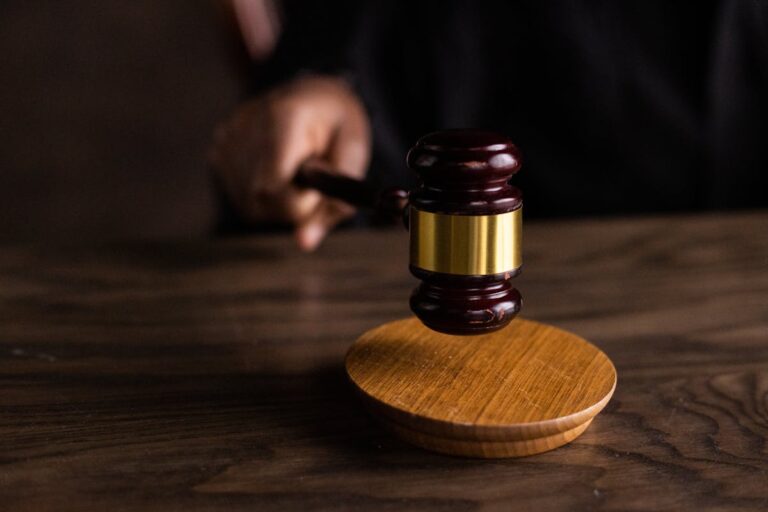How to Avoid Jail Time for 3rd Dui in NC
In North Carolina, evading jail for a third DUI conviction requires a strategic legal approach. Understanding state DUI laws, examining case details, and deploying legal defense tactics are key. This text discusses strategies to lessen third DUI conviction penalties. Engage in this vital dialogue.
Understanding North Carolina’s DUI Laws
Grasping North Carolina’s DUI laws is pivotal to strategizing potential avoidance of jail time for a third DUI offense. The state’s stringent DUI laws result in severe penalties for violations. A third DUI offense may lead to substantial fines, license suspension, and compulsory jail time.
North Carolina’s DUI laws, founded on deterrence philosophy, increase in severity with every subsequent offense. DUI penalties are determined by the offense specifics, such as the driver’s blood alcohol concentration level and whether the offense caused harm to others. License suspension, with varying durations based on the offender’s past record and offense circumstances, is a typical penalty.
Recognizing these elements of North Carolina’s DUI laws sets the basis for crafting legal strategies to potentially evade jail time. This understanding is the first step towards competent legal representation and potential mitigation of a third DUI offense’s repercussions.
Consequences of Multiple DUIs
The escalating severity of multiple DUI penalties in North Carolina includes increased fines, extended license suspensions, and potential jail time. This severity reflects the law’s intent to punish and deter repeat offenders, emphasizing DUI prevention.
The impact of multiple DUIs extends beyond court-imposed penalties, affecting personal life and financial stability. Consequences may include reduced job opportunities, societal stigma, and significant financial burdens. These burdens can arise from legal fees, increased insurance premiums, and potential earnings loss due to jail time or license suspension.
The probability of jail time rises with each repeated offense. A third DUI conviction, classified as a Class F felony in North Carolina, can result in up to 59 months in prison. The harsh consequences of repeated DUIs highlight the gravity of this recurrent crime. The best approach is to completely avoid driving under the influence.
Importance of Legal Representation
Retaining skilled legal representation is crucial due to the serious implications of multiple DUI convictions in North Carolina. An attorney proficient in DUI laws can exploit legal complexities to mitigate charges. Expertise in courtroom conduct is essential for a lawyer to create a professional and credible impression, which significantly influences the judge’s decision.
Legal representation signifies responsible handling of the matter, showing the court your commitment to the legal process and respect for the charges. It also implies the readiness to comply with legal procedures and acknowledge the case’s severity.
An attorney provides informed advice on unique case strategies, facilitating navigation through the often complex and intimidating legal landscape. Since each DUI case varies, a legal expert’s assistance could significantly impact the case outcome. Avoiding redundancy and focusing on clarity and context, this text is optimized for semantic search engines and NLP, ensuring efficient machine learning processing.
Evaluating Your Case
Assessing your DUI case thoroughly is vital for a strong defense strategy, potentially leading to reduced penalties or dismissed charges. This involves evaluating case severity and identifying prosecutorial errors to your advantage.
Severity analysis includes understanding the case circumstances such as BAC at arrest, previous convictions, and any associated property damage or bodily injury. Higher severity, indicated by elevated BAC or resultant harm, often results in stricter penalties but provides negotiation scope based on specific conditions.
Locating prosecutorial errors is equally significant. Ranging from arrest procedure errors like insufficient probable cause or incorrectly conducted sobriety tests to possible constitutional rights violations, these flaws can diminish the prosecution’s case strength, offering a robust defense contention. Hence, a detailed case evaluation can enhance your chances of evading jail time for a 3rd DUI in NC.
Plea Bargaining Strategies
Mastering plea bargaining strategies can mitigate penalties of a 3rd DUI in NC. This requires negotiation skills and a comprehensive understanding of legal system for potential sentencing reductions.
Plea bargaining isn’t solely admitting guilt for lesser charges, but a negotiation process for the most favorable outcome. An adept attorney can navigate this process, negotiate a deal, and significantly reduce your sentence. This strategy necessitates a thorough understanding of law, analysis of prosecution’s case strength, and presenting your case favorably.
Sentencing reductions, a usual result of successful plea bargaining, vary from lesser jail time, reduced fines, to alternative sentences like community service or treatment programs. Convincing the prosecution of a weaker case is crucial, leading to a compromise.
Therefore, effective plea bargaining strategies are crucial for mitigating 3rd DUI penalties. With the correct approach, avoiding jail time is possible.
Potential Defense Tactics
Plea bargaining aside, several defense tactics may help avoid jail for a 3rd DUI in NC, requiring a deep understanding of North Carolina’s DUI laws and arrest details. Tactics include contesting sobriety checkpoints legality and police reasonable suspicion, challenging Ignition interlock device’s reliability, identifying blood alcohol test discrepancies, procedural errors, and constitutional rights violations. Each case’s unique context should determine these tactics’ application, ideally under an experienced attorney’s guidance.
Exploring Alternative Sentencing
Alternative sentencing in North Carolina aids in preventing a third DUI conviction from resulting in jail time. The state promotes reformation over punishment, offering DUI education and traffic school as alternatives to incarceration.
DUI education programs provide detailed information on alcohol and drugs’ impact on physical and mental health, as well as impaired driving’s legal and social consequences. The focus is on future offense prevention.
Traffic school extends understanding to road safety, defensive driving, and driver responsibilities. This fosters a behavioral change in the offender, acknowledging their actions’ severity.
Alternative sentencing benefits include offender rehabilitation and public safety. It prioritizes education, self-improvement, and deterrence over retribution, indicating a compassionate, just North Carolina justice system.
Importance of Substance Abuse Treatment
Substance abuse treatment plays a crucial role in reducing the recurrence of DUI offenses. This process combines educational elements with treatment strategies to decrease the likelihood of repeat infractions, fostering lasting behavioral change.
Addiction recovery strategies form the core of substance abuse treatment. These strategies focus on understanding addiction causes and providing the tools for managing and overcoming the addiction. The treatment includes therapy, counseling, medication, and support groups, creating a recovery-encouraging environment.
Sobriety narratives often motivate individuals to seek help and persist in their sobriety journey. These narratives underscore the experiences of individuals who have successfully overcome addiction, providing hope and strength to those struggling with addiction.
Substance abuse treatment is crucial for avoiding imprisonment for a third DUI offense in NC. It equips offenders with the necessary tools to fight addiction, fosters personal growth, and lessens the likelihood of recidivism.
Utilizing Expert Witnesses
Expert witnesses enhance understanding of a third DUI offense’s complex legal landscape. Their specialized knowledge and experience contribute to objective, credible testimony that can significantly sway a case outcome.
The credibility of an expert witness is crucial. They must not only have in-depth knowledge in their field but also the capacity to simplify complex concepts for the court’s understanding. This credibility is strengthened by their professional reputation, court case experience, and resilience under cross-examination.
Preparation of the witness is another key element in leveraging expert witnesses. This process involves familiarizing the expert with the case details, understanding the legal process, and readying them to deliver their testimony effectively. A well-prepared expert can offer accurate, compelling testimony that supports the defense strategy.
Challenging the Arrest Procedure
In DUI defense, the arrest procedure warrants meticulous scrutiny. This involves assessing police behavior during the arrest, and analyzing breathalyzer results in detail. Uncovered inconsistencies or infractions within these domains could potentially form a robust basis for contesting the arrest’s legitimacy and consequently, the DUI charge.
Examining Police Conduct
In North Carolina, challenging a 3rd DUI arrest necessitates examining the arresting officers’ conduct. Focus lies on officer training and Miranda rights application.
Proper officer training is critical for a valid arrest. This includes recognizing intoxication signs, conducting sobriety tests, and applying handcuffing techniques. Errors due to insufficient training can form a defense strategy.
Miranda rights, a constitutional protection, mandate officers to inform arrestees of their rights, including silence and attorney access. Failure to communicate these rights might result in evidence or confession dismissal.
Disputing Breathalyzer Results
Challenging the precision and reliability of breathalyzer results is a crucial strategy in contesting a 3rd DUI arrest in North Carolina. Breathalyzer results, despite their court acceptance, may exhibit flaws. Faulty readings can occur due to incorrect calibration or operator inadequacy.
Proper breathalyzer calibration is critical for accurate results. Periodic maintenance and calibration ensure the machine’s functionality. If calibration was incorrect during your arrest, the readings may be flawed, forming a strong defense argument.
The operator’s competency significantly influences the breathalyzer outcomes. Adequate training, certification, and correct test protocol are mandatory for the test administrator. Their qualifications or procedural compliance can be legally challenged if found lacking.
Therefore, contesting breathalyzer results by scrutinizing device calibration and operator competency forms a key defense strategy. Consulting an experienced DUI attorney is crucial to explore these defenses.
Contesting Breathalyzer Results
In contesting breathalyzer results for a third DUI charge in North Carolina, breathalyzer calibration and sobriety checkpoint legality form the defense focus. Calibration accuracy is pivotal for reliable results; improper calibration or maintenance may yield skewed results, weakening the case for the prosecution. DUI defense attorneys scrutinize calibration records and maintenance histories, often revealing significant errors, casting doubt on the results.
Sobriety checkpoints, frequent sites for breathalyzer tests, must adhere to legal standards for validity. Non-compliance by law enforcement could render gathered evidence, including breathalyzer results, inadmissible in court. Relevant factors include proper signage, sufficient driver warning, and an alternate route to circumvent the checkpoint.
Post-Conviction Relief Options
Examining post-conviction relief options can reveal potential mitigation strategies for a third DUI conviction in North Carolina, such as traffic school benefits and ignition interlock devices.
Traffic school benefits serve a dual role, providing education about the risks and consequences of drunk driving, and potentially reducing penalties, including jail time. This option promotes rehabilitation over punishment.
Ignition interlock devices, another relief option, require a driver’s breath sample before starting the vehicle. If the device detects alcohol, it prevents the vehicle from starting, thus deterring drunk driving. This alternative retains driving privileges.
Frequently Asked Questions
Can My Previous DUI Convictions in Another State Affect My Case in North Carolina?
Indeed, North Carolina state reciprocity laws dictate that DUI convictions from other states can influence your case, possibly escalating penalties, which may include jail time.
How Does a DUI Conviction Affect My Employment Prospects?
A DUI conviction significantly influences employment opportunities, primarily due to license suspension consequences. Yet, employers may view completion of sobriety programs as evidence of responsibility and behavioral change, potentially mitigating the impact.
Can I Get My 3rd DUI Expunged From My Record in the Future?
In NC, the expungement of a 3rd DUI is typically unlikely due to its severity. Exceptional circumstances may warrant consideration. For understanding the future implications, legal expert consultation is advised.
Whats the Difference Between a DUI and DWI in North Carolina?
In North Carolina, DUI and DWI refer to the same impaired driving offenses. The term DUI typically relates to alcohol-induced impairment, while DWI encompasses impairment from other substances like drugs.
What Impact Will a 3rd DUI Have on My Auto Insurance Rates?
A third DUI conviction typically triggers a significant rise in auto insurance premiums due to heightened risk perception. Insurers may even opt for coverage cancellation, as this indicates repeated safe driving standard breaches.







